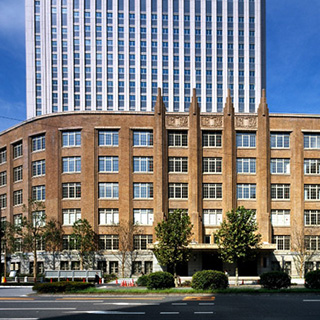The Significance of Lifelong Learning
Amid the great changes taking place in society and the economy, learning for a diverse range of purposes at the various stages of life and the creation of an environment for that purpose, that is, the creation of a Lifelong Learning Society, has grown in importance. The term “Lifelong Learning Society” is used to mean a society in which everyone can learn anywhere and at any time in their lives and appropriately utilize that learning to cultivate their own individuality and lead a fulfilling life.
Towards the promotion of lifelong learning, in 1990 the government formulated the Law Concerning the Establishment of Implementation System and Other Measures for the Promotion of Lifelong Learning and established a system for its implementation. Then, in 2006, the philosophy of lifelong learning was clarified in an amendment to the Basic Act on Education. Still, the creation of a lifelong learning society is still only half done, and new problems are emerging.
First, various data have highlighted the fact that not only for children but for adult-oriented learning activities and local activities as well, the roles and time devoted to social activities has decreased in recent years. For example, according to public opinion surveys, while roughly 70% of overall respondents said they would like to engage in lifelong learning, as for how things currently stand, about half of the respondents reported that they had not taken part in lifelong learning activities in the past year. Reasons offered by respondents included that they were busy with work and had no time for self-development and that such activities cost a lot.
However, amid the changes to the current state of society indicated below, the significance of lifelong learning is mounting.
(1) In the midst of a dwindling birthrate and a population that is aging and shrinking, bringing out the skills and individuality of every person to the utmost extent and utilizing diverse human resources has become absolutely essential to Japan’s economy and society;
(2) In particular, to adapt to the rapid changes in the structures of industry and employment brought about by globalization, people need to possess occupational and vocational skills throughout their lives and relearn the necessary knowledge, skills and other qualities as they organize their social lives;
(3) Additionally, as a background to the rise in irregular employment and risk of corporate bankruptcies, as problems of disparity and poverty are highlighted, we need to expand opportunities for education and skill development that support individuals’ efforts to acquire knowledge and skills and achieve economic independence;
(4) Further, in light of the philosophy of independence and coexistence and the importance of regenerating the bonds in society, we are faced with the challenge of not only government but also a diverse range of agents including local residents, companies and NPOs having a hand in achievements which benefit society, and as a means to implement vigorous regional development and learning activities to that end, lifelong learning has gained importance;
(5) In the meantime, with the advent of the aging society, we need to expand educational opportunities to meet the intellectual appetite so that the elderly can lead fulfilling lives.
Lifelong Learning and the Revitalization of Society and Local Communities
Particularly with respect to the points mentioned in (4), improving the development and power of local communities can be regarded as learning about a variety of challenges and the very process of its implementation. For example, it has been pointed out that educational abilities in local communities have declined. Amid this, as an initiative aimed at supporting schools in the field across entire regions, progress has been made with the implementation of school support regional headquarters and after-school classrooms. These initiatives don’t just enrich learning for children and enhance school functions; for the people of participating local communities, they also contain aspects of lifelong learning as the act of learning and utilizing the fruits of that learning. This is thought to strengthen bonds in local communities and lead to vigorous regional development and by extension the revitalization of society as a whole.
Future Promotion of Policies
In this way, amid great changes in society and the economy, it is considered crucial that we now once again undertake an overhaul of education and educational policies from the perspective of lifelong learning.
Currently, business and labor communities, the national government and local governments are united in efforts aimed at achieving work-life balance, but it is thought that both “work” and “life” will be enriched by not only striking a harmony between work and life but by expanding “learning” and “local activities” as well. For this reason, based on the notion that it should also be referred to as “work-learning balance,” as it were, MEXT will endeavor to promote a range of policies aimed at the revitalization of society with learning through one’s life serving as the driving force.
(Lifelong Learning Policy Bureau)




